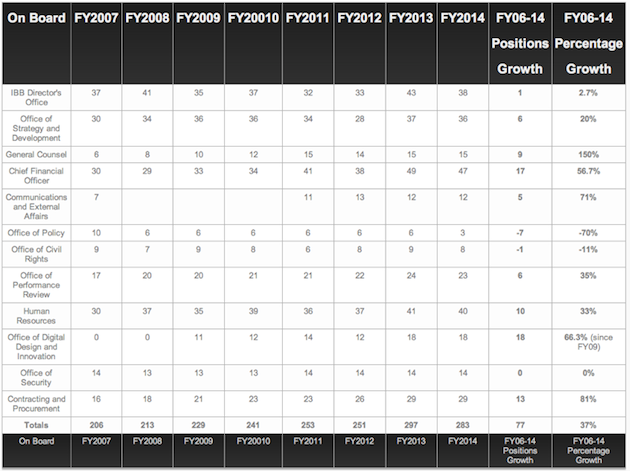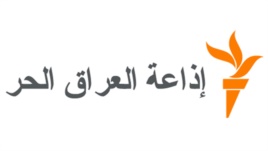BBG Watch Commentary
With the Islamic State of Iraq and the Levant (ISIL or ISIS), a jihadi extremist group and self-proclaimed caliphate in control of large parts of Iraq committing human and cultural genocide, the Broadcasting Board of Governors (BBG), the U.S. federal agency and its International Broadcasting Bureau (IBB) officials who exercise ultimate control over Radio Free Europe / Radio Liberty (RFE/RL), concluded that RFE/RL’s Radio Free Iraq is no longer needed. Radio Free Iraq will air its final broadcast on July 31, according to official announcements.
Radio Free Iraq “has provided accurate and non-sectarian news and information to local audiences and fostered informed debate of issues that are not otherwise reported in Iraq’s ethnically, politically and religiously fragmented media,” RFE/RL pointed out in a press release. Some Radio Free Iraq resources will be merged with a controversial as to its impact music and news station, Radio Sawa, which is also funded by the BBG at another non-federal BBG entity, Middle East Broadcasting Networks (MBN).
An RFE/RL journalist, who wants to remain anonymous, called the closing down of Radio Free Iraq “in the face of the ISIL onslaught” … “an incredible gesture.” “What is behind it? Stupidity only?,” RFE/RL journalist asked.
“In an incredible gesture, … announces the closure of the Iraqi Service [RFE/RL Radio Free Iraq], at a moment when it would be paramount to have a very strong Iraqi service in the face of the ISIL onslaught. What is behind it? Stupidity only? Or a manoeuver to divert more funding toward some TV pet project?”
According to an RFE/RL press release, “in recognition of their service, BBG Chairman Jeffrey Shell presented letters of appreciation to RFI colleagues, noting that, ‘[Radio Free Iraq’s] coverage of all sides of Iraq’s political scene has been unparalleled and deeply appreciated by its audience, as has its coverage of news from throughout the country with its wide network of regional correspondents. Iraqi decision makers have considered RFI a must listen or read in their daily news diet while Iraqi citizens have expressed gratitude to RFI for providing a platform for them to raise their voices and concerns’.”
 Sources told BBG Watch that the decision to shut down Radio Free Iraq was not made by Radio Free Europe / Radio Liberty. It was made over RFE/RL’s protests by BBG’s vast federal bureaucracy — the International Broadcasting Bureau — which spends $262 million or 34% of the entire $750 million BBG budget on salaries and support services. IBB has numerous and redundant federal executive positions which have grown in numbers in recent years. The number of all IBB’s full-time positions has increased by 37% in the seven-year period ending in FY 2014.
Sources told BBG Watch that the decision to shut down Radio Free Iraq was not made by Radio Free Europe / Radio Liberty. It was made over RFE/RL’s protests by BBG’s vast federal bureaucracy — the International Broadcasting Bureau — which spends $262 million or 34% of the entire $750 million BBG budget on salaries and support services. IBB has numerous and redundant federal executive positions which have grown in numbers in recent years. The number of all IBB’s full-time positions has increased by 37% in the seven-year period ending in FY 2014.
RFE/RL’s projected FY 2016 budget is $116 million. RFE/RL is a non-federal BBG grantee. Sources told BBG Watch that IBB officials are planning to expand their control over RFE/RL and other non-federal BBG entities. Critics say that this would expose RFE/RL to the same mismanagement characteristic of IBB. They hold IBB responsible for the decline of the Voice of America (VOA), BBG’s federal media outlet for global audiences. According to sources, IBB has instigated a shakeup which may affect RFE/RL’s top leadership.

A secret document designed as a series of briefing memos for a new BBG CEO, expected to be named soon by the BBG board, outlined some of the problems of the IBB bureaucracy. These memos were were written secretly by BBG employees in Washington who wish to remain anonymous.
The latest round of IBB-proposed cuts is even more stunning, BBG employees warned. For FY16, IBB proposed through BBG to eliminate VOA Lao Service, to stop giving voice to the voiceless in one of the only five remaining communist regimes in the world, to save $700,000. IBB also proposed to cut $1.3 million in VOA radio broadcasts in Afghanistan. “ISIS certainly understands the value of the war-torn Afghanistan. It is expanding its operation there as the U.S. withdraws troops from the country,” BBG employees wrote. There are other critical radio services listed on the BBG’s FY16 budget submission for reduction or elimination.
BBG employees call actions by IBB bureaucracy and its executives “Silencing Voice To The Voiceless” by well-funded IBB.
RFE/RL managers and journalists have been strongly opposed to the closing of Radio Free Iraq, sources told BBG Watch.
Each year, IBB’s federal executives propose to the bipartisan nine-member BBG board eliminations and reductions of media services to foreign audiences while increasing their own ranks and budgets. These cuts often affect countries which are considered high national security risks for the United States.
IBB officials had frequently cut programs to countries and regions before major crises erupted. In 2008, Voice of America radio and satellite television news broadcasts to Russia were eliminated on the recommendation of IBB officials just days before Russia launched a military invasion of Georgia and occupied parts of its territory. Voice of America is controlled by IBB to an even greater extent than RFE/RL. VOA has been a target of numerous IBB-proposed program cuts and in a major decline as a news organization for several years.
In another show of poor political judgement, IBB executives ordered a public opinion poll to be conducted in Crimea shortly after the Ukrainian territory was occupied and annexed by Russia.
According to agency officials, resources will be merged with Radio Sawa Iraq to provide the audience with extensive Iraq-specific news and informational programming. According to a description on MBN’s website, “news and current affairs programs make up approximately a third of Radio Sawa’s programming schedule…combined with an upbeat mix of the best Western and Arabic popular music.”
MBN has not updated or attempted to correct with countervailing data a Wikipedia article on Radio Sawa which includes information from 2004-2011 suggesting that “the station’s emphasis on popular music has led critics to question if music alone is enough to convey America’s message.” A study published in 2006, which surveyed college students at universities in five Arab countries, found that the students’ attitudes towards U.S. foreign policy had actually worsened since they started listening to Radio Sawa and watching Al Hurra TV. el-Nawawy, Mohammed (2006). [“US public diplomacy in the Arab world : the news credibility of Radio Sawa and Television Alhurra in five countries”. Global Media and Communication.]
###
RFE/RL Press Release
Radio Free Iraq Signs Off After 17 Years Of Service
July 30, 2015
WASHINGTON — RFE/RL’s Arabic Service to Iraq, Radio Free Iraq (RFI) will air its final broadcast on July 31. The resources of RFI will be merged with Radio Sawa Iraq to provide the audience with extensive Iraq-specific news and informational programming. The new Radio Sawa Iraq programming will be broadcast on both its existing frequency and those of RFI during a period of transition.
In recognition of their service, BBG Chairman Jeffrey Shell presented letters of appreciation to RFI colleagues, noting that, “[Radio Free Iraq’s] coverage of all sides of Iraq’s political scene has been unparalleled and deeply appreciated by its audience, as has its coverage of news from throughout the country with its wide network of regional correspondents. Iraqi decision makers have considered RFI a must listen or read in their daily news diet while Iraqi citizens have expressed gratitude to RFI for providing a platform for them to raise their voices and concerns.”
RFE/RL Editor-in-Chief Nenad Pejic paid tribute to the sacrifices made by RFI colleagues to deliver the news in a country riven by constant political turmoil, violence, and war. A bomb blast at the AlHamra Hotel in Baghdad in 2005 ripped apart the Service’s bureau, two correspondents – Khamail Muhsin Khalaf and Nazar Abdulwahid al-Radhi – were murdered in 2007, and RFI Baghdad Bureau chief Dr. Muhammad Bdaiwi Owaid al-Shammari was shot dead at a checkpoint in 2014 while on his way to work. RFI correspondents have also suffered kidnappings, death threats, harassment, and physical injury while reporting the news.
In remarks to RFI staff members, Middle East Broadcasting Networks (MBN) President Brian Conniff said that, “At this moment in history, when Iraq is threatened by an extremist Islamic insurgency and faces numerous challenges in rebuilding from decades of open warfare and authoritarian rule, we believe adding RFI’s signature programming to the Radio Sawa Iraq lineup will provide the audience high quality content that will enhance their listening experience.” MBN manages and oversees Radio Sawa.
Radio Free Iraq was created by RFE/RL in 1998, in response to direction from the U.S. Congress. Led first by former U.S. Ambassador to Iraq David Newton, and since 2004 by journalist Sergei Danilochkin, it has provided accurate and non-sectarian news and information to local audiences and fostered informed debate of issues that are not otherwise reported in Iraq’s ethnically, politically and religiously fragmented media.

Comments are closed.